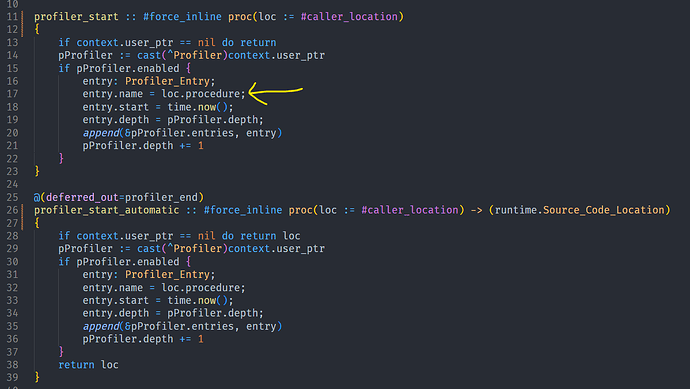my_head :: proc() {
// no thoughts
}
print_name :: proc(p: proc()) {
// how to get "my_head" from p
}
Not in the general case, because the proc doesn’t have to have a name. On top of that, particularly when p is a proc pointer from a variable at run-time, that information isn’t really available–a proc pointer is just a pointer to the machine code for the proc. There’s no metadata available for it. You could theoretically pull that information by looking it up in a debug info/symbol table (if available), but there’s nothing built-in to do that that I know of.
One sort-of-workaround could be to use #caller_expression for this:
print_name :: proc(p: proc(), p_name := #caller_expression(p)) {
// p_name == "my_head" for print_name(my_head)
}
Of course, if you were to call it from another package it could be stuff.my_head. Or if it’s passed via a proc pointer variable, it’ll give you the name of that variable instead. It’ll give you a string of the expression that was actually passed for p when calling the proc to get the value for that parameter (to an extent).
The real question is, why do you need the name of the procedure value that you passed in?
In a multithreaded job system, it would be easier to debug if I also kept track of names. I could log jobs being scheduled in a particular order, or not scheduled due to some error. I could see which jobs are running at what point, and it would help for profiling as well. I could explicitly call a procedure from within the job and use #caller_location for some of these but it’s easier to have it be automatic.
Well in those systems, you can easily track it anyway it with #caller_location or whatever. I do think what you are trying to do is probably the wrong way to go about it.
Yeah, I was just curious if it was possible, I’ve still yet to decide what I’ll actually do. I’ll keep the advice in mind.
I use it to make a flame graph and its nice to see procedure names
loc.procedure gives you what you want @luma-nova and #force_inline may do the trick, I dont remember
